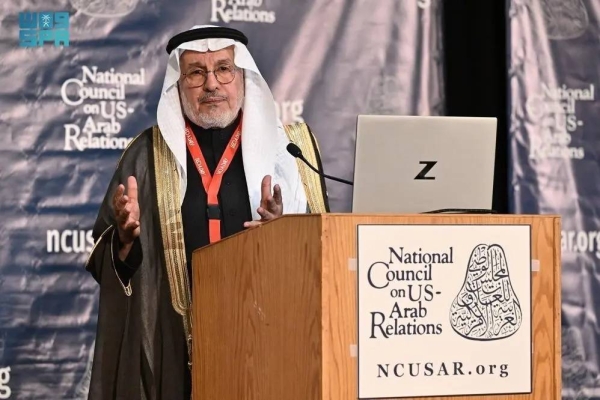Saudi Arabia has been providing humanitarian and relief assistance to 170 countries with a total amount of $133 billion between 1996 and 2024. The King Salman Humanitarian Aid and Relief Center (KSrelief) Supervisor General Dr. Abdullah Al-Rabeeah shared this information at a meeting organized by the National Council on U.S.-Arab Relations in Washington. He highlighted the pressing challenges faced in humanitarian efforts, including escalating crises in countries like Lebanon, Palestine, and Sudan. Al-Rabeeah mentioned the launch of an airlift to support the Lebanese people, with 22 planes having arrived carrying Saudi aid, including food, medical supplies, and shelter materials.
The UN Humanitarian Response Plan for 2024 has secured only 37.5 percent of the necessary funds, totaling $18 billion, while the actual need exceeds $49 billion. Al-Rabeeah also mentioned the effects of climate change, economic fluctuations, access restrictions, and threats to aid workers complicating the humanitarian landscape. Since its establishment in 2015, KSrelief has carried out 3,105 projects in 104 countries, totaling more than $7.1 billion, with Yemen receiving the largest share of aid amounting to over $4.5 billion.
KSrelief has initiated various projects to support women and children worldwide, benefiting millions of individuals. Initiatives such as the Masam project in Yemen, clearing over 468,000 landmines, and programs for providing prosthetic limbs and reintegrating children formerly associated with armed conflict into society have been successful. The center has also launched initiatives such as the Saudi Aid Platform, the Platform for Assisting Displaced Persons and Refugees, and the National Volunteer Portal to support humanitarian efforts.
Saudi Arabia hosts over 1.1 million refugees, providing them access to free healthcare and education and emphasizing their integration into society. Al-Rabeeah stressed the Kingdom’s immediate response to crises in countries like the Gaza Strip and Sudan, providing significant aid through air and sea bridges. He also highlighted the launch of the Saudi Sama’a Volunteer Program for Cochlear Implantation and Hearing Rehabilitation in Turkiye, focusing on auditory rehabilitation for those affected by the earthquake in Syria and Turkiye.
The Saudi Conjoined Twins Program for separating Siamese twins has conducted successful operations and raised awareness about humanitarian cases, resulting in the designation of November 24 as “World Conjoined Twins Day” by the United Nations. A global conference is scheduled to be held in Riyadh under the patronage of Custodian of the Two Holy Mosques King Salman to commemorate over 30 years since the launch of the program. The Riyadh International Humanitarian Forum is also set to take place in February 2025, showcasing Saudi Arabia’s continued commitment to humanitarian efforts.
In conclusion, Saudi Arabia’s humanitarian aid and relief efforts through KSrelief have made a significant impact on various countries worldwide, providing support to women, children, refugees, and individuals in need. The Kingdom’s initiatives and projects reflect its commitment to addressing global humanitarian challenges and supporting those affected by crises and disasters across the globe. Through continued support and innovative programs, Saudi Arabia strives to make a difference in the lives of millions of individuals in need and contribute to global humanitarian efforts.









